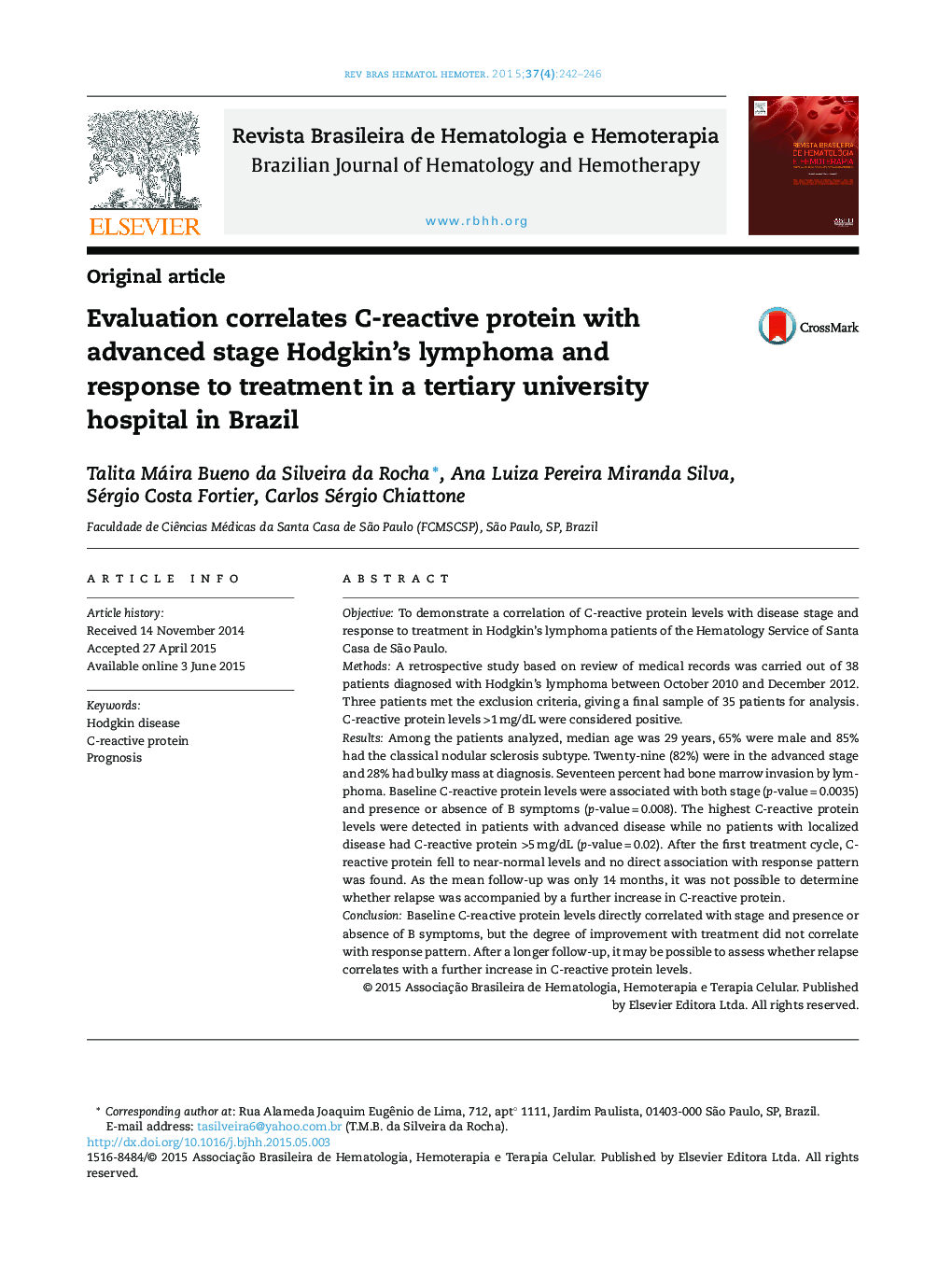| Article ID | Journal | Published Year | Pages | File Type |
|---|---|---|---|---|
| 3332949 | Revista Brasileira de Hematologia e Hemoterapia | 2015 | 5 Pages |
ObjectiveTo demonstrate a correlation of C-reactive protein levels with disease stage and response to treatment in Hodgkin's lymphoma patients of the Hematology Service of Santa Casa de São Paulo.MethodsA retrospective study based on review of medical records was carried out of 38 patients diagnosed with Hodgkin's lymphoma between October 2010 and December 2012. Three patients met the exclusion criteria, giving a final sample of 35 patients for analysis. C-reactive protein levels >1 mg/dL were considered positive.ResultsAmong the patients analyzed, median age was 29 years, 65% were male and 85% had the classical nodular sclerosis subtype. Twenty-nine (82%) were in the advanced stage and 28% had bulky mass at diagnosis. Seventeen percent had bone marrow invasion by lymphoma. Baseline C-reactive protein levels were associated with both stage (p-value = 0.0035) and presence or absence of B symptoms (p-value = 0.008). The highest C-reactive protein levels were detected in patients with advanced disease while no patients with localized disease had C-reactive protein >5 mg/dL (p-value = 0.02). After the first treatment cycle, C-reactive protein fell to near-normal levels and no direct association with response pattern was found. As the mean follow-up was only 14 months, it was not possible to determine whether relapse was accompanied by a further increase in C-reactive protein.ConclusionBaseline C-reactive protein levels directly correlated with stage and presence or absence of B symptoms, but the degree of improvement with treatment did not correlate with response pattern. After a longer follow-up, it may be possible to assess whether relapse correlates with a further increase in C-reactive protein levels.
